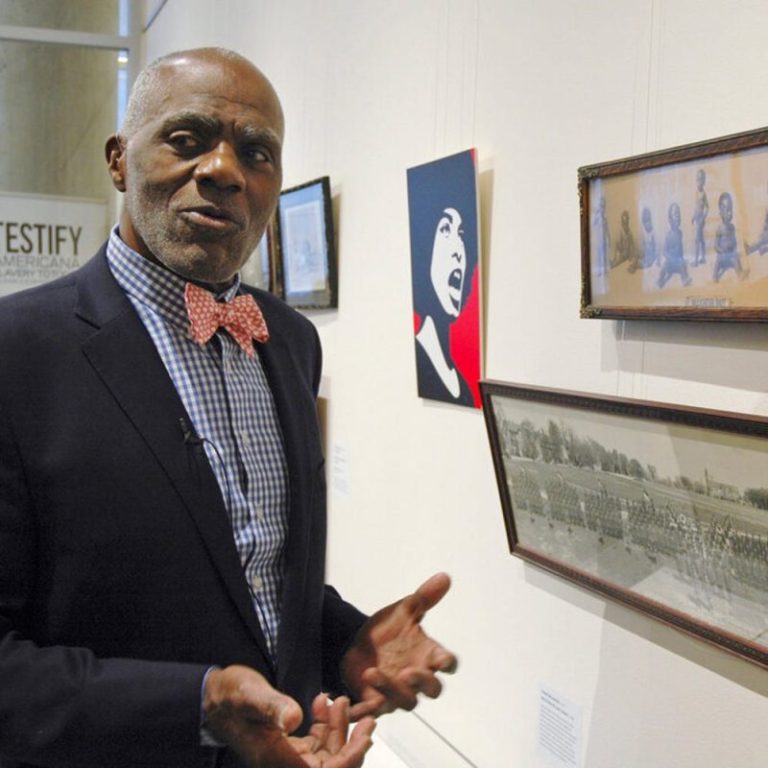In February for Black History Month, USA TODAY Sports is publishing the series “28 Black Stories in 28 Days.” We examine the issues, challenges and opportunities Black athletes and sports officials continue to face after the nation’s reckoning on race following the murder of George Floyd in 2020. This is the third installment of the series.
In 1954, when the U.S. Supreme Court issued its landmark decision in Brown v. Board of Education, 8-year-old Alan Page in Canton, Ohio, wanted to become a lawyer — just like Thurgood Marshall, the NAACP chief counsel who had won the case declaring “separate but equal” education to be unconstitutional.
Achieving that dream would mean years of expensive education for the son of a bar owner and a stay-at-home mom.
‘Mind you, I didn’t know any lawyers; I didn’t have any lawyers in my family,’ says Page, who was the youngest of four siblings. ‘But the power of the court’s decision in Brown left me with the impression that the law was about fairness, about justice, about solving problems, and quite frankly about helping people.’
History maker
Page says he started playing football at age 14 – around the time his mother died. He went to the University of Notre Dame in South Bend, Indiana, on an athletic scholarship and in 1967 was a first-round draft pick by the Minnesota Vikings. A defensive tackle, he played in four Super Bowls and in 1971 was the first defensive player in NFL history to be named league MVP. But he never took his eyes off his real goal.
‘The more education one has, the more opportunity one has, and the more choice one has,’ he says. So, he enrolled in law school at the University of Minnesota while still playing for the Vikings.
Page obtained his law degree in 1978. That year, the Vikings released him, and he went to the Chicago Bears. For three years during the offseason, he practiced law at a leading Minnesota firm, eventually becoming an assistant state attorney general.
‘My legal career was by design; my athletic career was by accident,’ Page says. He retired from the NFL in 1981 and was inducted into the Pro Football Hall of Fame in 1988. In 1992, he won a seat on the Minnesota Supreme Court, was re-elected three times, and served until August 2015, when he reached the mandatory retirement age of 70.
Four years before becoming the first African American justice on the state’s highest court, Page and his wife, Diane, created the Page Education Foundation. The foundation awards scholarships to racially underrepresented Minnesota high schoolers with college aspirations.
‘That first year we had 10 Page Scholars, this year we have 560,’ Page says. ‘As we approach our 35th anniversary, we’ve had more than 8,000 Page Scholars, all of whom have spent 50 hours per academic year in service to children.’
A true humanitarian
Page was named the 11th Heisman Humanitarian Award winner in 2016. In June 2017, a Minneapolis school was renamed Justice Page Middle School; and a new elementary school named for him opened in a St. Paul suburb in 2022. In November 2018, he received the Presidential Medal of Freedom.
Diane Page died in 2018; they were married for 45 years.
Today, Page is pushing for an amendment to the Minnesota state constitution that would declare a ‘fundamental right to a quality education’ that prepares children to compete economically.
‘Minnesota’s children are entitled to an adequate education system,’ he says. ‘The proposed amendment would make a quality public education a civil right … and it would hold accountable the education system — which to date has systemically and systematically failed children of color, Indigenous children, poor children and disabled children.’
He adds, ‘Education is a tool that anyone can use to choose whatever their hopes and dreams may be…without the education, your ability to accomplish is limited.’

